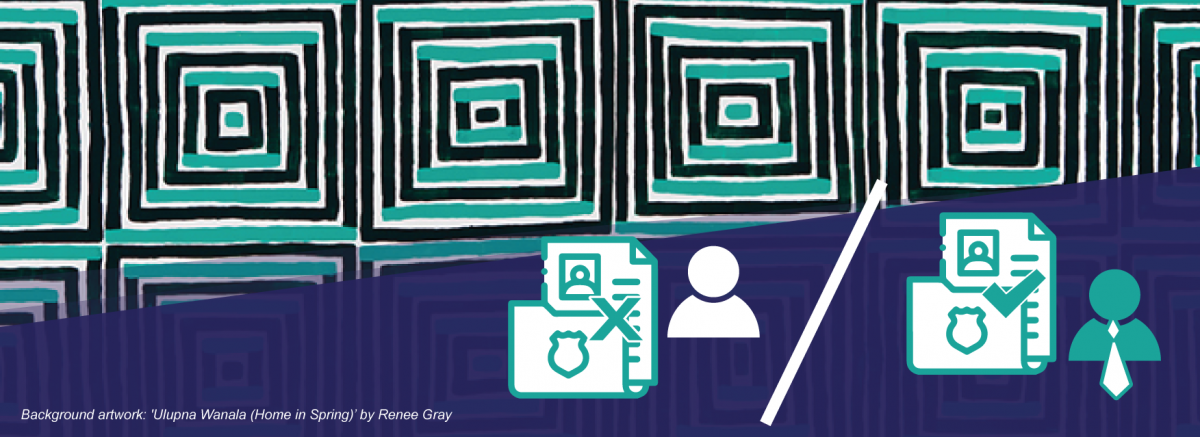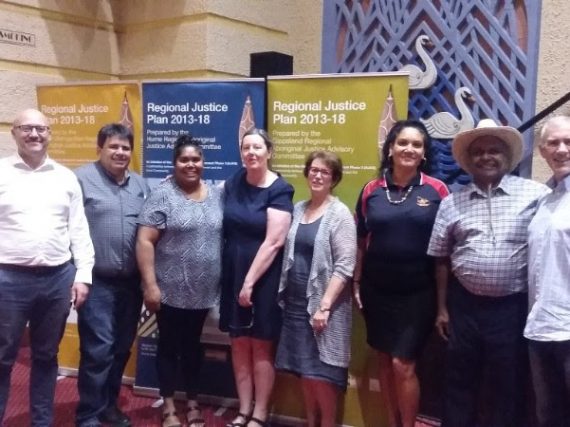Spent Convictions Orders for more serious convictions commence
The significant advocacy of the Criminal Records Discrimination Project has led to the Vic Government introducing a legislated spent convictions scheme which prohibits discrimination against people on the basis of an irrelevant criminal record.
The CIJ was a major partner of the award-winning Woor-Dungin Criminal Record Discrimination Project (CRDP), which was initiated in 2016 in response to the disproportionate impacts of criminal records on Aboriginal Victorians.
These impacts include social and economic exclusion, and poor justice and health outcomes, all of which limit the capacity of Aboriginal Victorians to achieve self-determination.
The significant advocacy of the CRDP eventually led to the Victorian Government introducing a legislated spent convictions scheme and amending the Equal Opportunity Act 2010 (Vic) to prohibit discrimination against people on the basis of an irrelevant criminal record.
The final components of the Spent Convictions Act 2021 (Vic) commenced on July 1, 2022.
There is now a process for individuals to apply to the Magistrates’ Court to have more serious convictions spent and no longer appear on their criminal record in most circumstances. Information on the scheme, including eligibility information and how to apply for a Spent Convictions Order, is available at https://www.justice.vic.gov.au/spent-convictions-applications
Recognising the disproportionate impact that historic convictions have on our Aboriginal communities, the Court must consider several factors in making an order, including unique systemic factors for Aboriginal people. The Victorian Aboriginal Legal Service have advised they can provide support for Aboriginal applicants to understand their rights and navigate their options.
The application process comes after the commencement in December last year of provisions that allow for the automatic spending of more low-level offences after ten or five years if the person has not re-offended during that time (other than very minor offending). Some convictions are immediately ‘spent’, including for children under 15 years of age, and where the court made its finding ‘without conviction’.
In some circumstances, courts, police, and certain specific agencies will have an exemption to access spent convictions information for a particular purpose. This includes Working with Children Checks, certain types of licences, some occupational accreditations (such as for health professionals, teachers, and lawyers), family violence and child safety information sharing, child protection, and immigration decision making.
The most serious convictions, including serious violence or sexual offences committed by adults when imprisonment was imposed, are not eligible to be spent. Other offences which attracted five or more years of imprisonment can also never be spent.
For more information, please read our Spent Convictions Q&A or visit https://www.justice.vic.gov.au/spent-convictions
Protections under the Equal Opportunity Act
The Act also amended the Equal Opportunity Act 2010 to prohibit discrimination on the basis of a ‘spent conviction’. Organisations now have a duty not to discriminate against a person on the basis of their spent conviction unless permitted under the Spent Convictions Act or Equal Opportunity Act, for example for certain licensing, safety and law enforcement purposes. People who have experienced such discrimination have access to the complaint process at the Victorian Equal Opportunity and Human Rights Commission to seek redress.
The Victorian Equal Opportunity and Human Rights Commission has published a guideline to assist organisations to understand their responsibilities to uphold this protection, including practical steps that employers and service providers can take to support their compliance. The guideline may be accessed at https://www.humanrights.vic.gov.au/for-individuals/spent-conviction/
Rethinking Criminal Record Checks project
The CIJ is continuing to ensure meaningful change for Victorians facing unfair barriers to employment through the Rethinking Criminal Record Checks (RCRC) project.
The RCRC project aims to explore ways to improve employment opportunities for Aboriginal people with a criminal history by identifying existing good practice amongst employers, and communicating these practices to job seekers and employers in ways that can be readily adopted.
Building on the earlier successful work addressing this issue, the RCRC project will also educate employers and job seekers about their rights and obligations in disclosing criminal history.
The CIJ is conducting this project in partnership with RMIT and Aboriginal community organisations VACCHO, Winda Mara and Woor-Dungin.
For more information, please visit https://cij.org.au/research-projects/rethinking-criminal-records/


